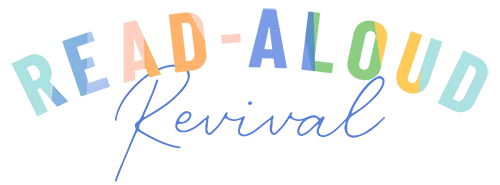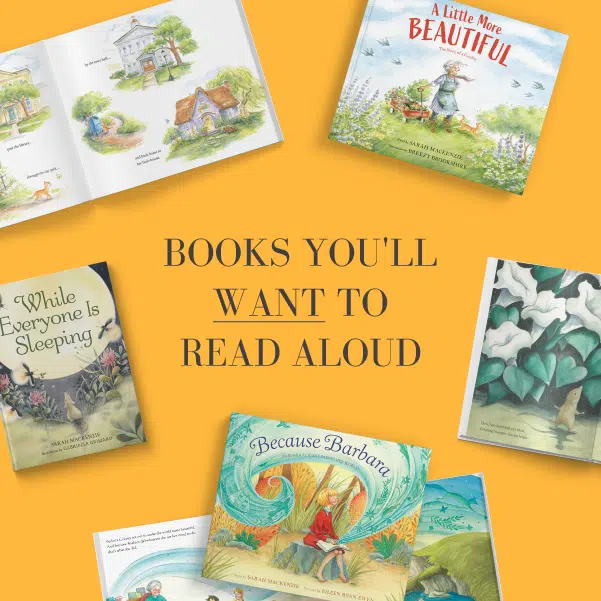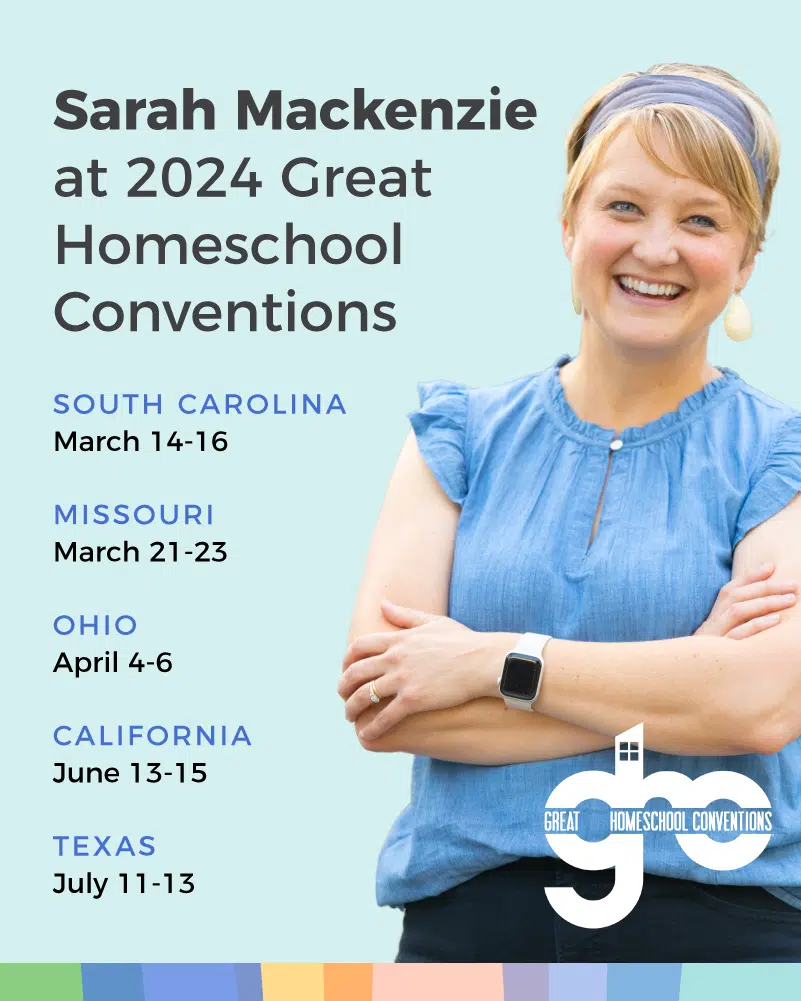One of the perks of having kids spread across several years is the gift of perspective. With our first three, I would just start to get the hang of something in our homeschool, only to find that we were now in a whole new season.
There is gift in that too (because only God knows the way He most wants to shape our family size), but I must say, I tremendously enjoyed having a second batch of babies.
For one: babies are scrumptious.
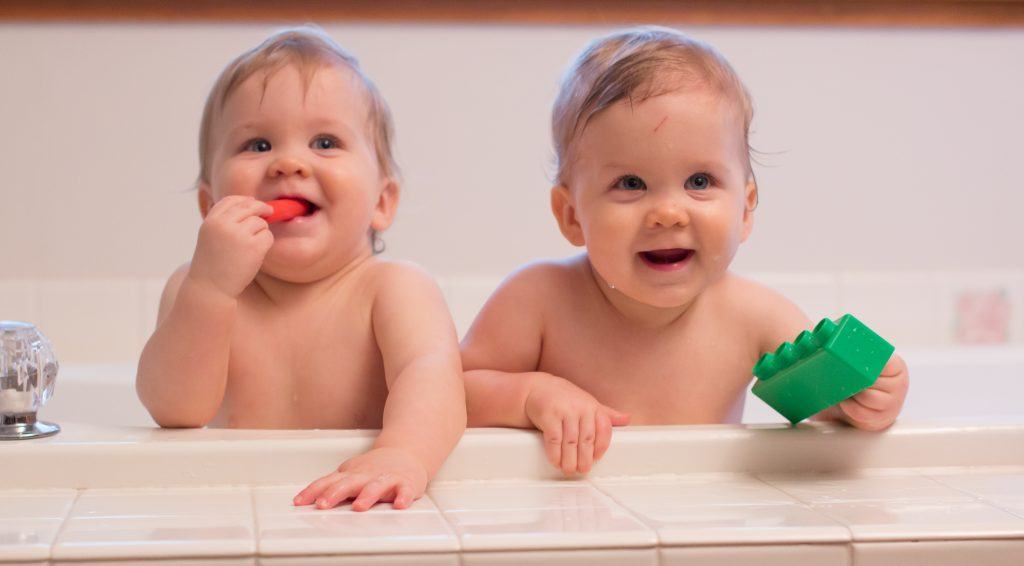
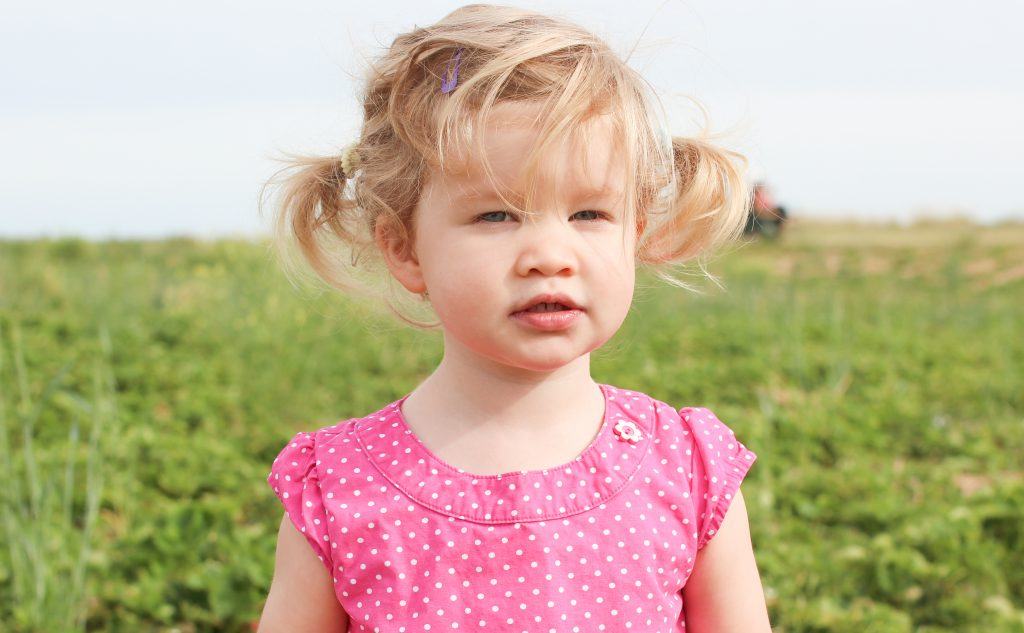
Second, I get a do-over, with that gift of perspective as a guide.
At the time I’m updating this, our oldest three are 18, 16, and 14. Our next three are 6 (twins) and 7.
One of the questions I hear a lot is:
How are you doing kindergarten, first, and second grade this time around?
There are a few things that made the biggest and best impact on my oldest children in those early years of homeschooling, and if I could go back in time, I would tell myself to focus on those things.
These are six things you can focus in those early homeschooling years and know you won’t regret them:
Read Aloud
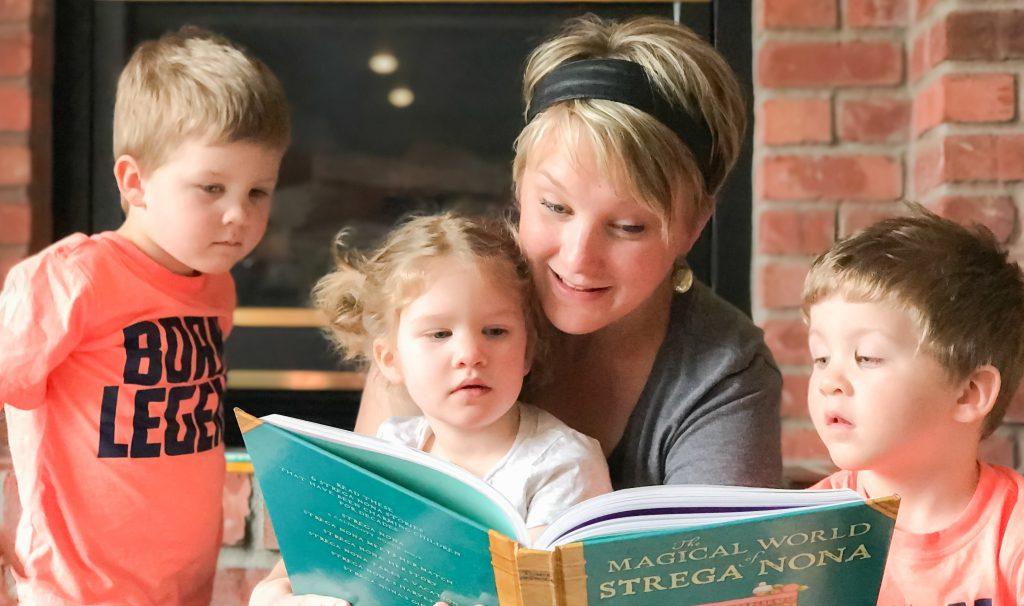
I would read aloud as much as my children could stand it. We did this, in fact, but when my oldest three were young, I felt compelled to extend the stories with activities, unit studies, and crafts that lined up with the stories’ themes.
If I could, I would tell myself to worry less (meaning: not at all) about literature-based unit studies or projects, and just enjoy good books together instead.
I would get my hands on an excellent booklist and I would read from that collection.
The story is enough, I would tell myself.
And then I would read another.
Math
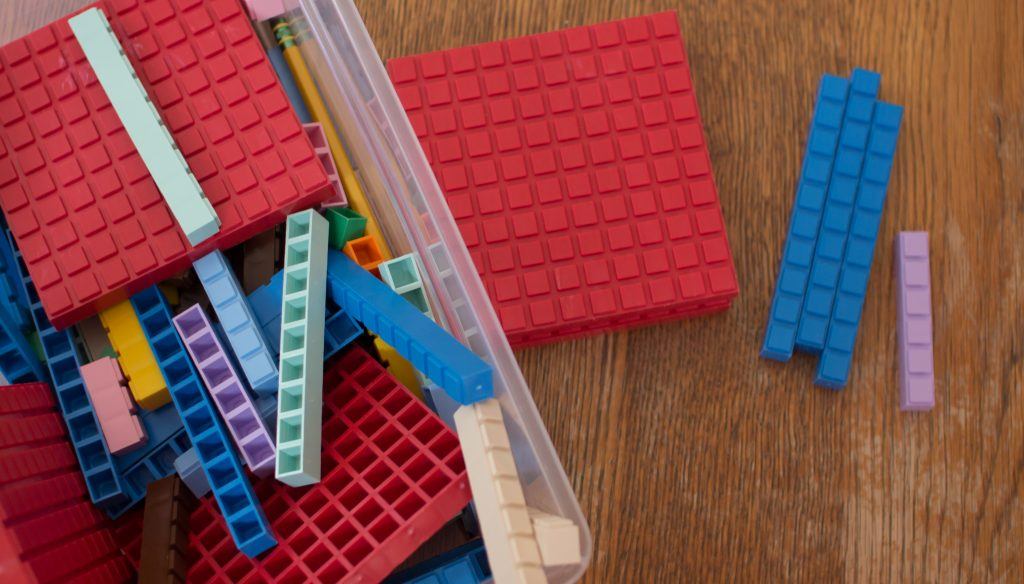
I always worried that my kids would hate math as much as I did when I was a child. I didn’t use formal programs because of that fear.
If I were doing it all over again, I’d start with an actual program when they are six. You know… ish.
I’d do a little bit most every day—10 or 15 minutes, max. It would be low-pressure and gentle, but I’d still work through a systematic program from the get-go. Slow and steady, as they say.
It turns out kids enjoy things they are good at. So I’d help them be good at math.
This time around, that’s what we’re doing.
P.S. I don’t think it matters all that much which math program you use, but it’s probably best not to hop from one curriculum to another over the years.
Learning How to Read
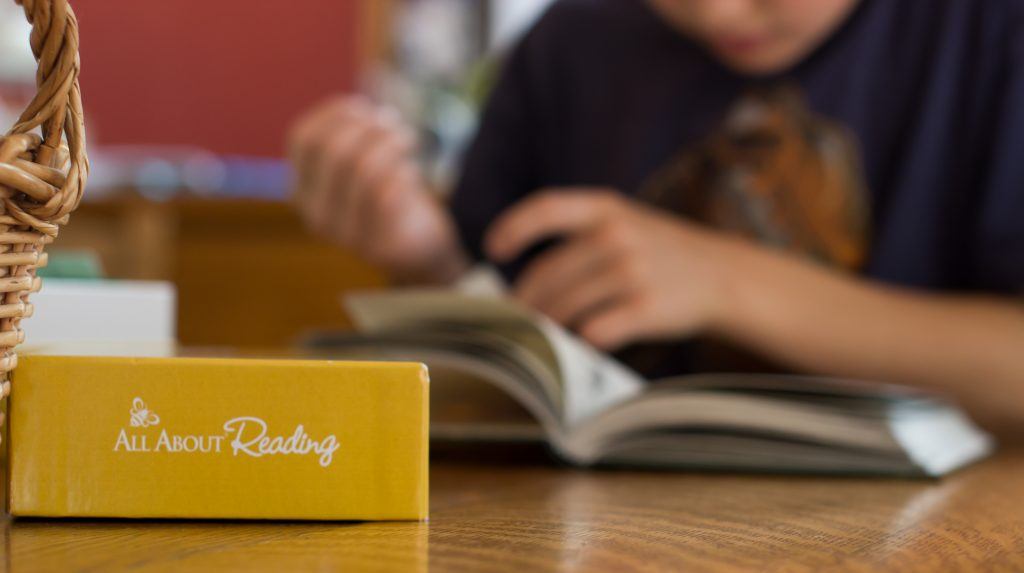
This is where I most wish I could whisper (vigorously!) to myself a dozen years ago.
Teaching my older children to read was an exercise in frustration—for them and for me.
I used too many different materials. I avoided robust programs because I was under the impression that teaching a child to read should be easy.
Newsflash: it’s not always easy.
If I could, I would go back and tell myself to use either All About Reading or Logic of English right from the start.
And by “from the start” I mean around first grade. I wouldn’t start before then.
Early reading doesn’t come with any benefits, and it comes at a high price when we try to force our kids into reading before they’re ready. (more on that from the Alliance for Childhood)
These days, I wait until my kids are about 6, and then I start with a solid program (my own favorites are All About Reading and Logic of English—there are many wonderful programs, so just choose what appeals to you.)
I smile a lot, take off all the pressure, and do a little bit consistently over the days and weeks and months and years. I don’t worry one bit about how long it takes.
It takes as long as it takes.
I’m quite certain my older kids would have become confident readers more easily if I had this perspective first time around. I also would have had lower blood-pressure. 🙃
Handwriting
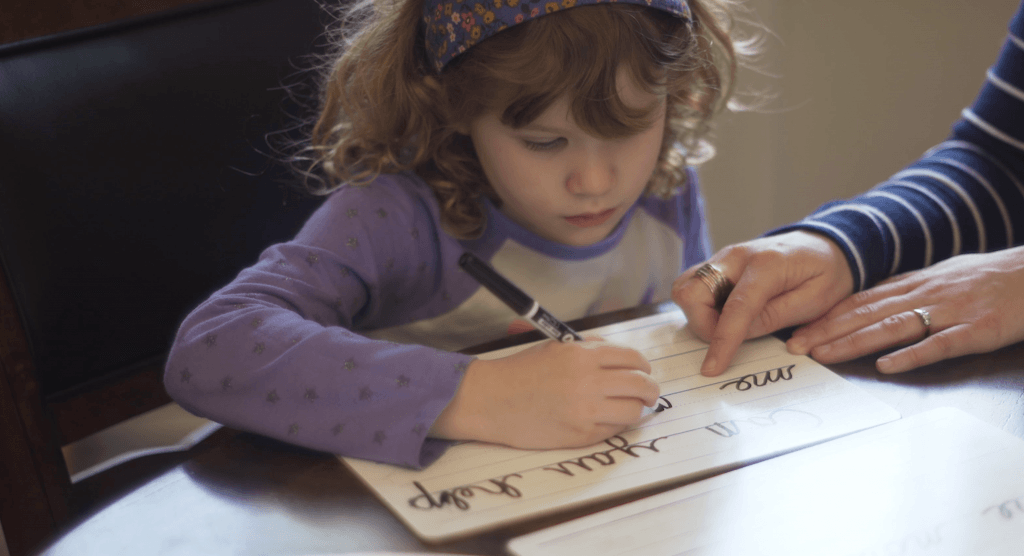
5 minutes a day. Maybe 10.
Not too much, but enough so that forming letters properly is built into muscle memory.
If you use Logic of English, handwriting is part of your reading lesson. Even if it’s not, you can do a bit of handwriting each day. Just a bit.
This time, I’m starting with cursive. (more on that here)
Focus on Building Habits
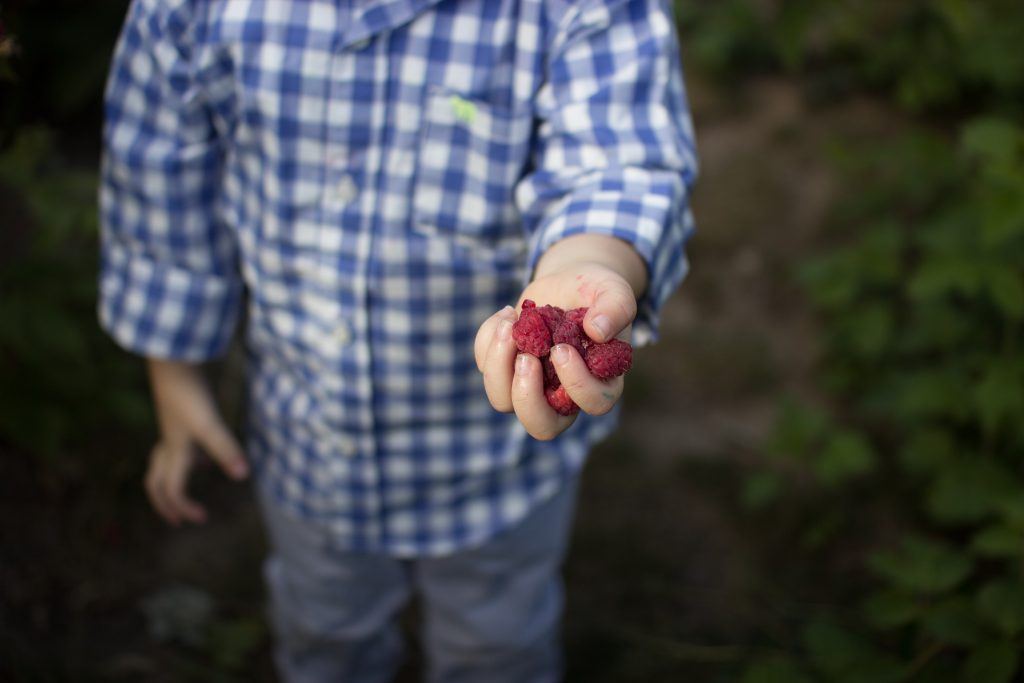
Ah yes. Habits. If I could go back in time to when my oldest three were in K-2, I would take all that energy I placed into “doing school,” and I would focus instead on helping them develop good habits.
Helping around the house, rinsing the sink after you brush your teeth, pushing in your chair at the table, making your bed in the morning… that kind of thing.
There’s no cute cotton ball art to hang on the fridge when you’re teaching a child to leave a bathroom better than they found it, but the payoff is far more worthwhile.
I would tell myself that time invested in teaching a child to do a chore well is time extremely well spent.
This is hard, because it’s not measurable, and you can’t exactly check it off a list. But it’s important.
Live Well
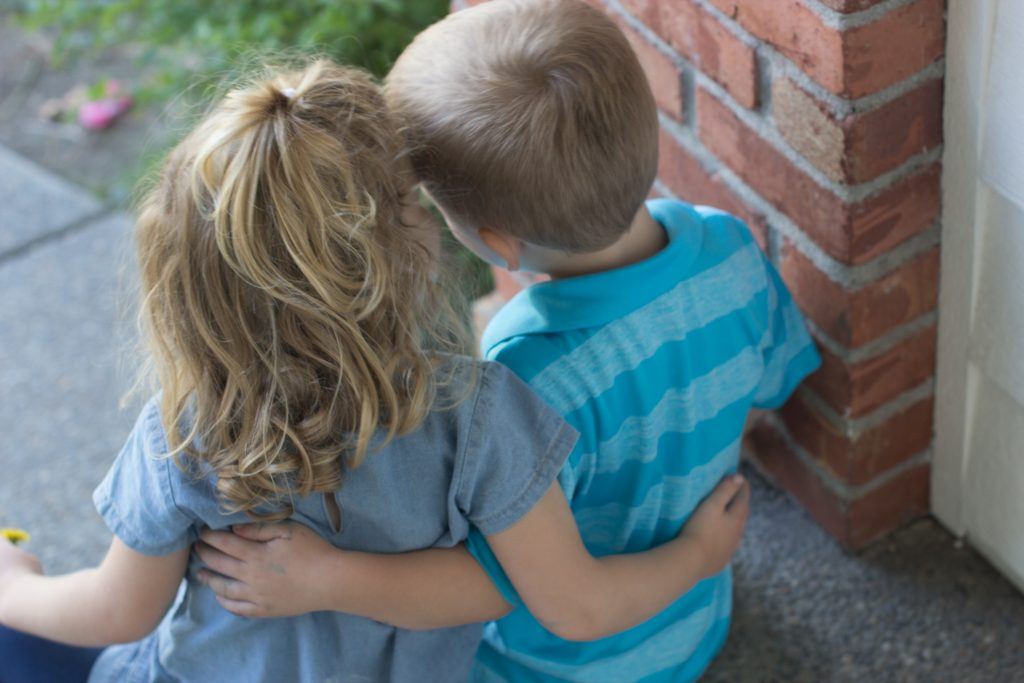
Let’s see… what else would I tell myself if I could go back in time?
During these early years of homeschooling, we’d play outside—every day, if possible.
We’d garden, go for walks, run errands, chat with the postman, watch slugs slither across the deck and leave trails behind. We’d play lots of games. We’d follow a natural daily rhythm that wasn’t tied to the clock.
I would read more picture books, spend more time working alongside my child on chores around the house and yard, and create fewer lesson plans.
We would memorize a little poetry and other such treasures.
I would have art supplies available and realize that for a kindergartener, helping mom cleaning up the craft is just as pleasurable (and useful) as doing the craft in the first place.
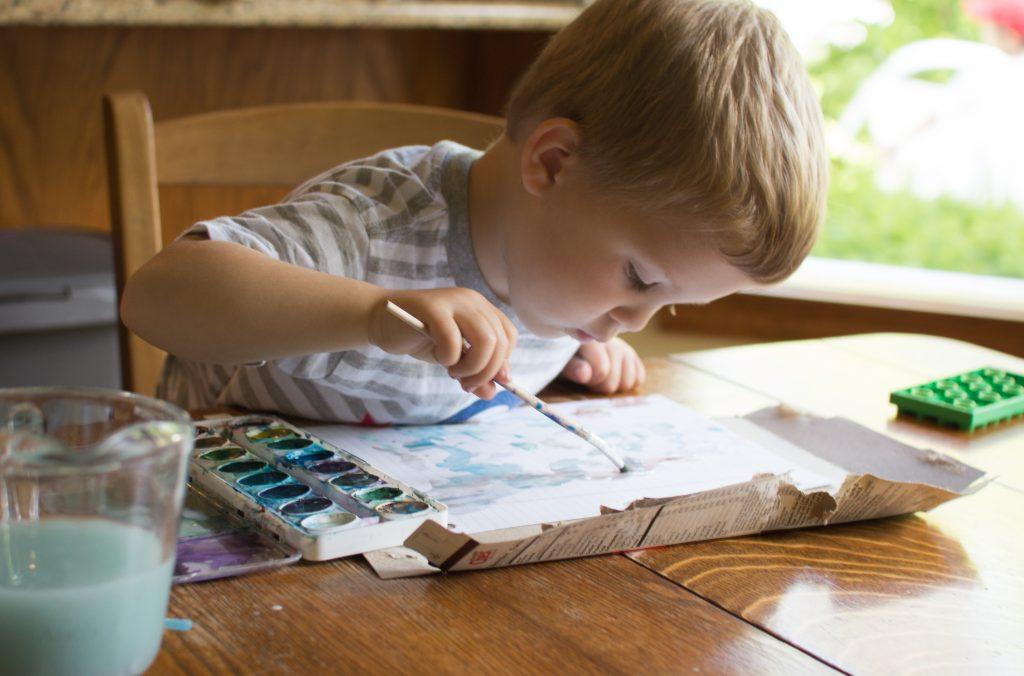
We would sing. Dance. Go to bed early.
I would foster wonder, curiosity, and the habits of being helpful in the context of family life. I would smile a lot. Laugh a lot. Be goofy, and kind, and try to remember that a peaceful, smiling mother goes an awful long way to building up fortitude and happy childhood memories.
And then we’d read aloud a little bit more, just for good measure.
Of course, we did many of these things, but I would do them with more confidence, with more rest, with more relish.
I would know this was the most valuable “school” day of all.
That’s what’s changed this time around: this time, I know this is the most valuable kind of school day of all.
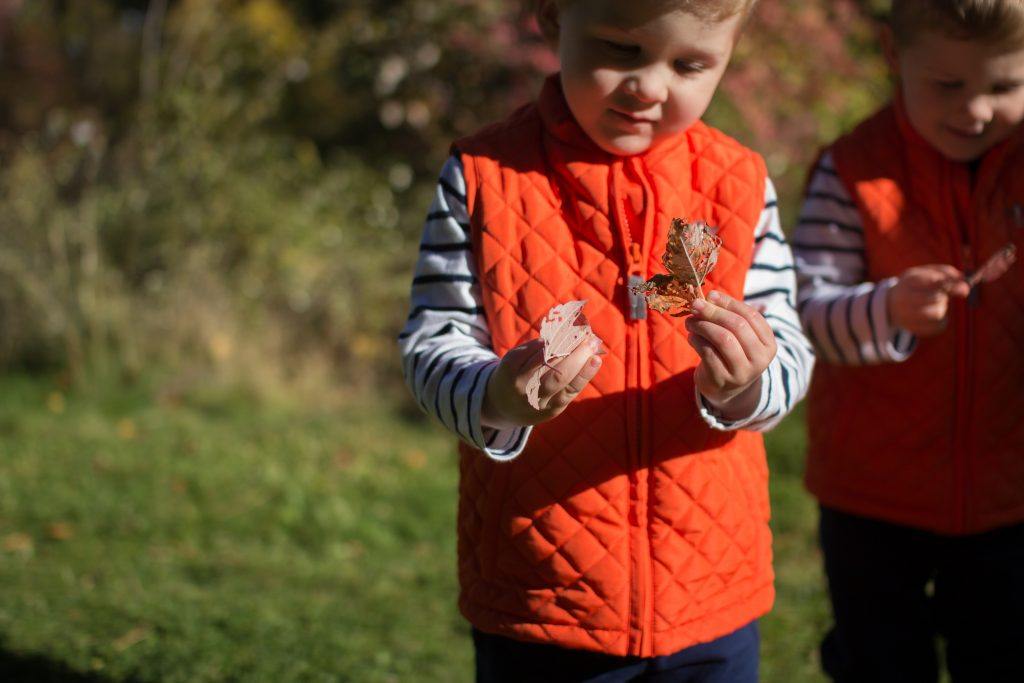
If you’re looking for a program of study for your K-2 child, maybe try this:
Read more. Love more. Wonder more. Don’t sweat the small stuff.
And since I’m doing these years one more time with this next batch of babies, that’s what I’m doing.
The biggest difference is knowing that I’ll never regret these early days, shared and savored. They don’t last forever.
This time, I know that for sure.
P.S. This is the question you want to answer before your head hits the pillow tonight.
More free resources and booklists
Get the best episodes and reources
from the Read-Aloud Revival
